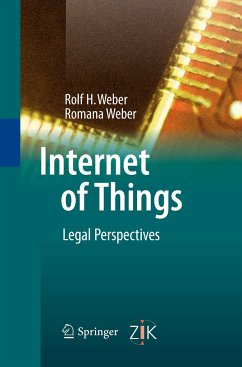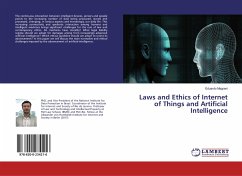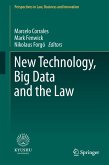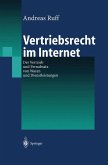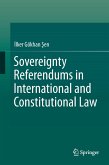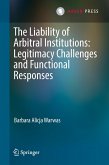The Internet of Things as an emerging global Internet-based information archit- ture facilitating the exchange of goods and services is gradually developing. While the technology of the Internet of Things is still being discussed and created, the legal framework should be established before the Internet of Things is fully operable, in order to allow for an efective introduction of the new information architecture. If a self-regulatory approach is to be adopted to provide a legal framework for the Internet of Things, and this seems preferable, rulemakers can draw on experiences from the current regime of Internet governance. In the near future, mainly businesses will operate in the Internet of Things. Civil society is only expected to make use of the Internet of Things, as it now does of the Internet, at a later stage (e.g. for healthcare). The Internet of Things will have an impact in various areas. The regulatory fra- work must provide for provisions ensuring the security of thestructure as well as the privacy of its users. Furthermore, legal barriers that may stand in the way of the coming into operation of the Internet of Things will have to be considered. However, the Internet of Things will also have positive efects in diferent felds, such as the inclusion of developing countries in global trade, the use of search engines to the beneft of civil society, combating product counterfeiting, tackling environmental concerns, improving health conditions, securing food supply and monitoring compliance with labor standards.
Bitte wählen Sie Ihr Anliegen aus.
Rechnungen
Retourenschein anfordern
Bestellstatus
Storno

